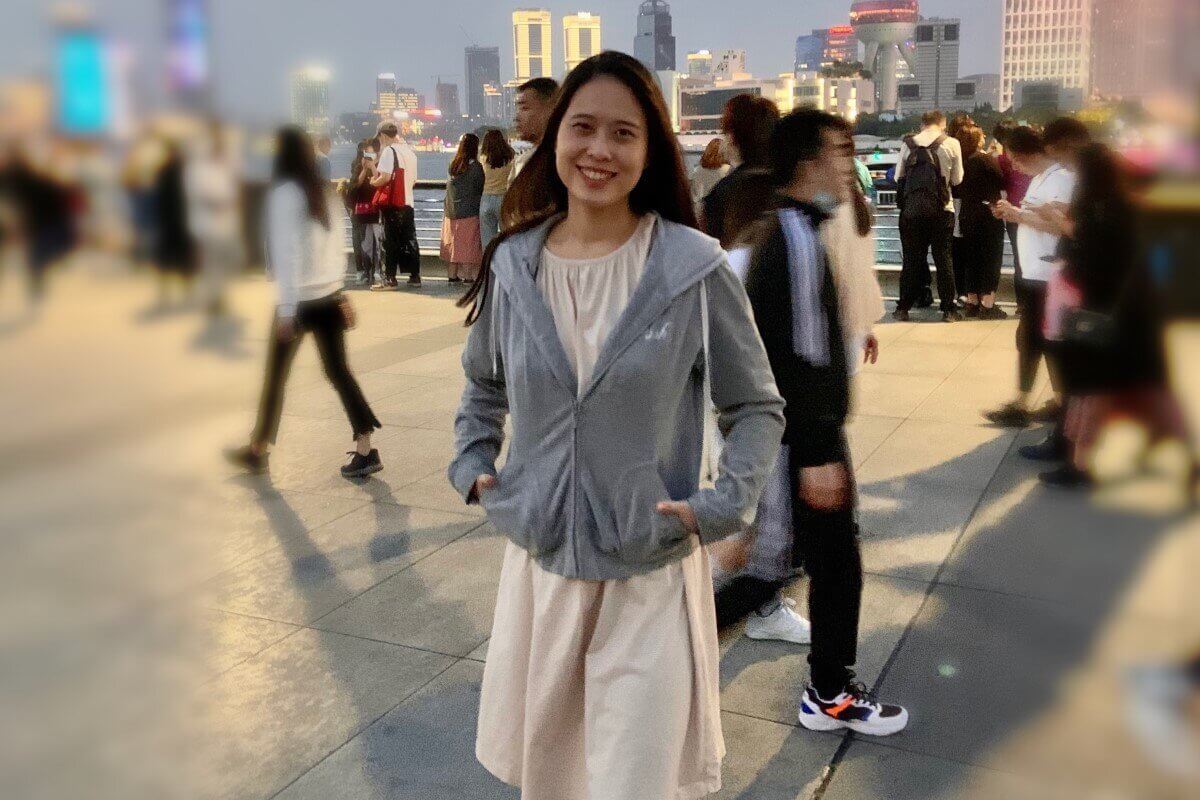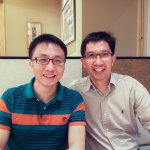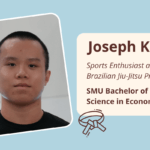By the SMU Postgraduate Research Programmes Team
When PhD candidate in Economics Bian Xueying embarked on her studies at SMU, winning awards for her multidisciplinary approach to her thesis research was never a top priority. Instead, with sustainability a key focus of her work, she was more committed to creating meaningful impact with long-term outcomes.
“My main research field is empirical finance, and my secondary research field is energy economics,” the aspiring educator shares.
“My research topics cover investors’ limited attention, inter-firm link and the associated return predictability, corporate social responsibility (CSR), institutional investors and the board of directors.”
To date, she has completed several papers related to CSR and energy efficiency in the rental market, while sincerely hoping for her research to contribute to the area of ‘green economy’. For someone who first developed a passion for this in her youth, it is understandable why her work is not solely about attaining academic accolades.
“I joined many environmental protection clubs since high school, and have always wanted to make a personal contribution,” Xueying enthused.
Award-winning impactful research
This aspiration towards a greener future has motivated Xueying to delve into innovative research methods. The Chinese-born student was awarded the SMU Multidisciplinary Doctoral Fellowship, a one-year award that is renewed annually for up to four years. This recognition is given to existing PhD students whose research output show the use of techniques from two or more fields of research.
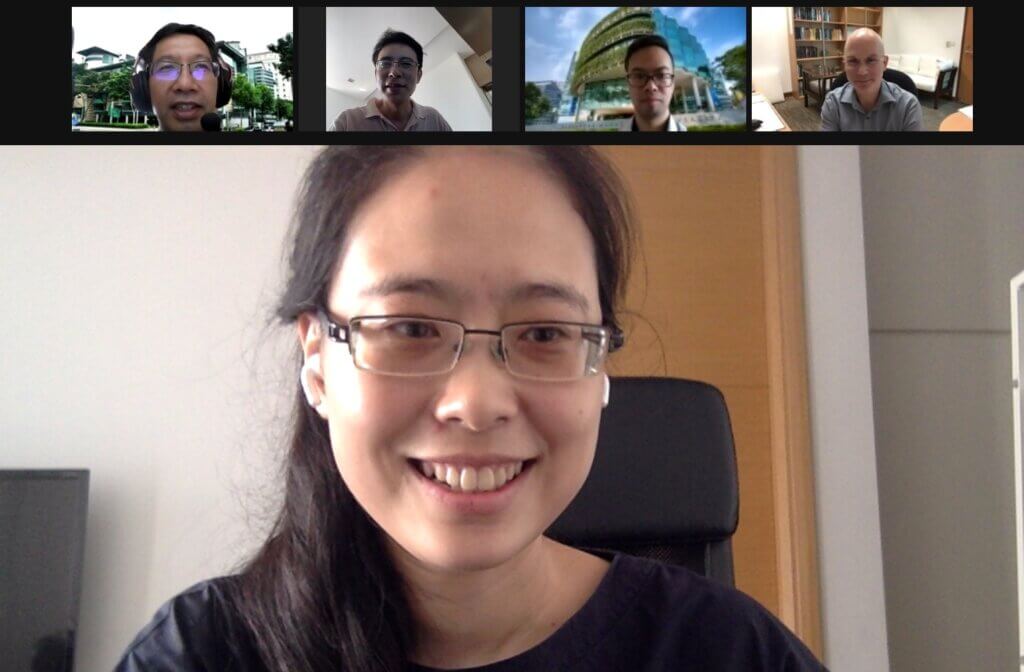
Xueying at her dissertation defence, 9 April 2021
Though Xueying was honoured to receive it, the award was hard-earned. The Covid-19 pandemic adversely affected her mentorship, forcing her to resort to virtual meetings and messaging platforms to keep her supervisors updated. Instead of deep-diving into one area of specialisation as do most PhD students, Xueying immersed herself in more than just one area of research, consciously allocating time to other areas for a holistic take on her dissertation, Three Essays on Empirical Finance.
“The main challenge for me was to read and understand the research of different subjects within a limited time frame,” she explains.
“Time management is a crucial skillset to have for any student delving into multidisciplinary research. Having a structured plan, and then following it through, is also key.”
Xueying, who has also studied in China and at the Center for Monetary and Financial Studies (CEMFI) in Spain, says that the university had been a conducive environment for her. Bolstered by SMU’s reputation as a champion of multidisciplinary research, she had access to various thought leaders in their respective fields, and advice on utilising a multifaceted approach that combines distinct disciplines.
“There were two reasons I chose the School of Economics’ PhD programme in SMU,” she shared. “Firstly, it was due to the excellent research environment. Secondly, Singapore is a safe and beautiful country not far from my hometown.”
She adds: “I also appreciated the flexibility of being able to choose supervisors from other schools for the specific field I was researching. My two supervisors Professor Jun Yu and Professor Jun Tu are very supportive in terms of research topics; they’re the ones who referred me to professors in different schools and send papers related to my research.”
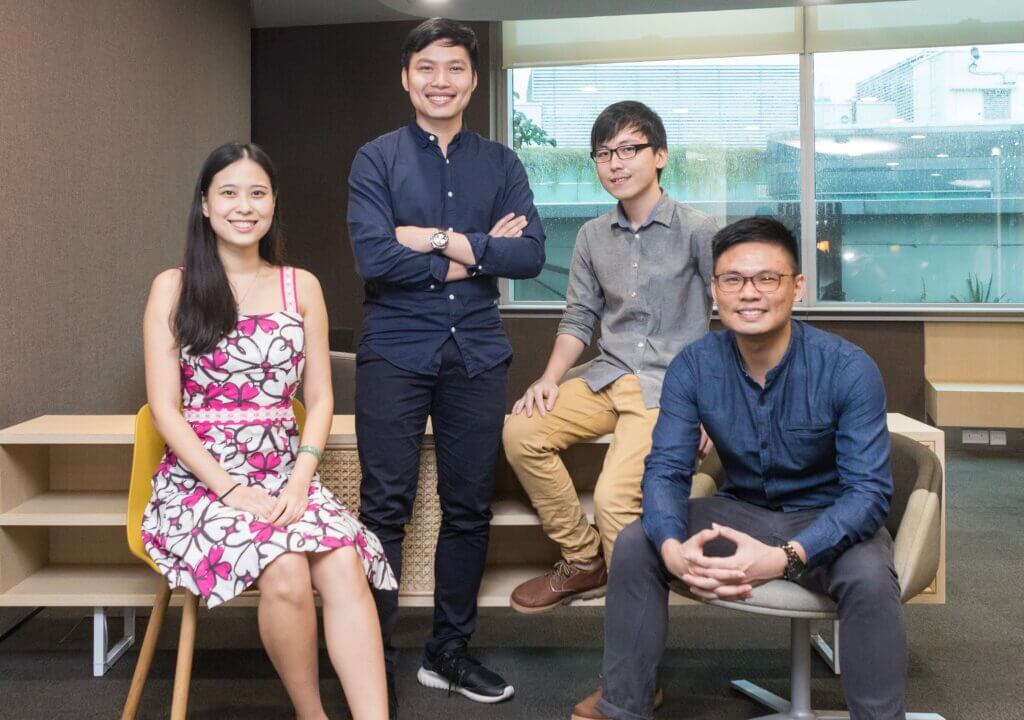
Xueying (left) with the other Student Life Award winners in August 2018
For someone who seems to have academic excellence in her DNA, securing the prestigious SMU Multidisciplinary Doctoral Fellowship is perhaps an unsurprising milestone — especially since Xueying had also garnered many other awards and fellowships during her time at SMU. In her SMU PhD journey, she had also secured the University’s Presidential Doctoral Fellowship, a Graduate Instructor position in 2019, as well as a PhD Student Life Award and First Year Best Performance Award.
“Recognition like these are very important, and let me gain more confidence in my research,” she admits.
Finding solutions to real-world problems
Beyond the world of academia, her research aims to understand the impact of a firm’s CSR investment by institutional investors. Through her findings, policymakers and institutional investors can be reminded of the importance of nurturing an environment for peer influence.
She clarifies: “In addition to vocal advocacy, they can plant a few seeds for socially and environmentally desirable behaviours in pioneer firms. Other firms may follow suit simply due to peer competition or socialisation.”
Xueying’s research recommends that firms pay conscious attention to their investee peers or risk “losing their edge” in the eyes of their investors.
“From a competitive intelligence point of view, our study points out the possibility that a firm’s strategic moves can be driven by its investee peers.”
In a related area, she also studies the asymmetric information—or “information failure” that occurs when one party of an economic transaction possesses greater material knowledge than the other—regarding the energy efficiency of residential properties.
“The objective is to shed light on the house owners’ incentives to obtain and disclose energy certificates (ECs) in the rental market,” says Xueying.
Results of the study implied that the enforcement of the EC regulation should be more stringent during the early phases, as the boost in the initial disclosure rate would strengthen the incentives for later adoption.
With corporate organisations increasingly driven towards projecting a sustainable ethos, the job of nurturing a new generation of green-minded innovators will certainly be in high demand. Armed with her in-depth knowledge in transitioning current practices into a diverse and financially viable economy, Xueying is well-positioned to make more waves in the field.
“I will definitely be exploring more multidisciplinary research in my next role at the Beijing University of Posts and Telecommunications,” adds Xueying.
My dream is to be a teacher. I’m very lucky that the dream will come true very soon.”

